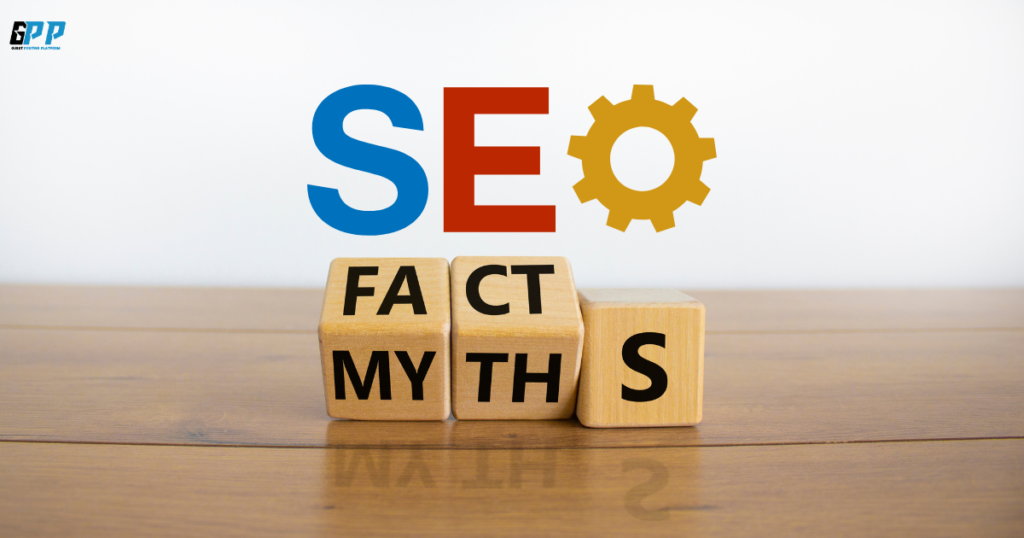SEO, or Search Engine Optimization, is the practice of improving a website’s visibility on search engine results pages like Google. By optimizing keywords, content, and technical aspects, SEO helps websites rank higher and attract more organic, non-paid traffic. Essentially, it connects users to relevant websites based on their search queries, enhancing visibility and reach.
Think of SEO as a powerful tool that makes your website stand out in a crowded digital space. With the right strategies, SEO draws in more visitors, increases brand credibility, and connects you with a targeted audience. It’s like putting up a bright, attention-grabbing sign that invites users to explore what your site has to offer.
In short, SEO is a mix of art and science, focused on aligning your site with what users search for. From selecting relevant keywords to ensuring a seamless user experience, SEO aims to make your website both user- and search engine-friendly, ultimately helping people find exactly what they need.
Table of Contents
The Basics of How SEO Works
SEO works by understanding how search engines operate. Search engines use algorithms to analyze and rank websites based on relevance, content quality, and user experience. SEO is a method to optimize websites so they meet the criteria of these algorithms and rank higher on SERPs.
Crawling, Indexing, and Ranking
The SEO process begins with search engines sending out bots to “crawl” webpages, gather data, and “index” them based on relevance. Pages are then “ranked” based on several criteria, with the goal of presenting the best, most relevant content to users.
Types of SEO

On-Page SEO
On-page SEO involves optimizing the content and HTML elements on your website. This includes:
- Keyword Optimization: Strategically placing keywords in your content, headings, and URLs.
- Content Quality: Content should be unique, informative, and engaging to keep users on the page longer.
- Meta Tags and Descriptions: These brief summaries help search engines understand your page’s content.
Off-Page SEO
Off-page SEO focuses on building your site’s authority through external efforts:
- Link Building: High-quality, authoritative links from other websites boost your credibility.
- Social Media Engagement: Although not a direct ranking factor, social shares can indirectly influence SEO.
Technical SEO
Technical SEO involves backend site optimizations:
- Site Speed: Faster-loading sites improve user experience and rankings.
- Mobile Optimization: With more people browsing on phones, mobile-friendly sites rank better.
Local SEO
For businesses targeting local audiences, local SEO is crucial:
- Google My Business (GMB): Optimizing your GMB profile makes it easier for local users to find you.
- Local Citations and Reviews: Positive reviews and accurate listings on directories can boost local rankings.
Understanding Keywords in SEO
Keywords are the phrases or terms that people search for. Using relevant keywords effectively connects your content to your target audience’s queries.
Types of Keywords

- Short-tail Keywords: Broad, one- or two-word phrases with high search volume (e.g., “SEO”).
- Long-tail Keywords: More specific phrases that target a narrower audience (e.g., “how to improve SEO rankings”).
Keyword Research
Keyword research involves using tools to identify search terms relevant to your content. Analyzing these keywords can help you target queries that match your audience’s interests.
Content’s Role in SEO
High-quality, unique content is at the core of successful SEO. Engaging content encourages users to spend time on your site, reducing bounce rates and improving rankings.
The Importance of User Experience (UX)
User experience (UX) has a significant impact on SEO. A user-friendly website encourages longer visits, improving metrics like bounce rate and dwell time, which are favorable to SEO.
Backlinks and Their Importance
Backlinks are links from other websites to your own. Search engines view quality backlinks as endorsements, helping your site rank higher. However, it’s important to focus on quality over quantity.
Optimizing for Mobile
With the majority of users now browsing on mobile devices, mobile optimization has become critical. Websites should be responsive, easy to navigate, and quick to load on mobile devices.
Technical Aspects of SEO
Technical SEO covers the foundation of your site’s performance and structure:
- Site Structure and Sitemaps: Organized sitemaps help search engines crawl your site more effectively.
- SSL Certificates and Security: Secure websites are preferred by search engines, making SSL certificates essential.
Tools for SEO Success
Many tools help improve and track SEO performance, including:
- Google Analytics: Tracks site traffic and user behavior.
- SEMrush: A comprehensive tool for keyword research, competition analysis, and SEO audits.
Tracking and Measuring SEO Success
Monitoring SEO progress is essential to understanding what works. Key metrics include:
- Traffic: How many visitors you get from search engines.
- Conversions: Actions users take that contribute to business goals.
- Rankings: Your website’s position on SERPs for targeted keywords.
SEO Myths and Misconceptions

Many people think SEO delivers instant results, but it’s a long-term strategy. Common myths include:
- Keyword Stuffing Helps Rankings: Overusing keywords harms SEO.
- SEO is One-Time: SEO requires ongoing effort to maintain rankings.
SEO Best Practices
To stay competitive, it’s essential to:
- Stay Updated with Algorithm Changes: Search engines update algorithms frequently.
- Adapt SEO Strategies for Future Trends: As SEO evolves, it’s important to embrace new practices.
The Future of SEO
Emerging SEO trends focus on:
- AI Integration: AI is shaping how search engines understand and rank content.
- Voice Search: With more people using voice search, optimizing for conversational keywords is becoming important.
Conclusion
In a world where search engines are the primary way people find information, SEO is essential. It connects businesses to their audience and builds credibility and visibility.
FAQ’s
What are the basics of SEO?
SEO involves optimizing your website to rank higher on search engines, targeting keywords, creating quality content, and improving user experience.
How long does SEO take to show results?
SEO is a long-term strategy that typically takes 3-6 months to show significant results.
Why is keyword research important?
Keyword research helps you understand what your audience is searching for, allowing you to create content that matches their needs.
Can I do SEO on my own?
Yes, you can start with basic SEO practices, but for more complex tasks, professional assistance may be beneficial.
What is the difference between SEO and SEM?
SEO focuses on organic traffic, while SEM (Search Engine Marketing) includes paid advertising to improve visibility.






